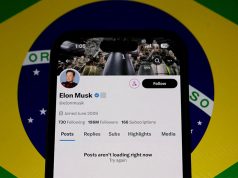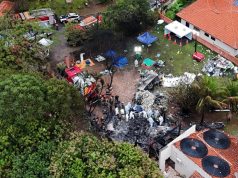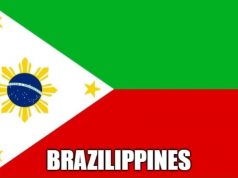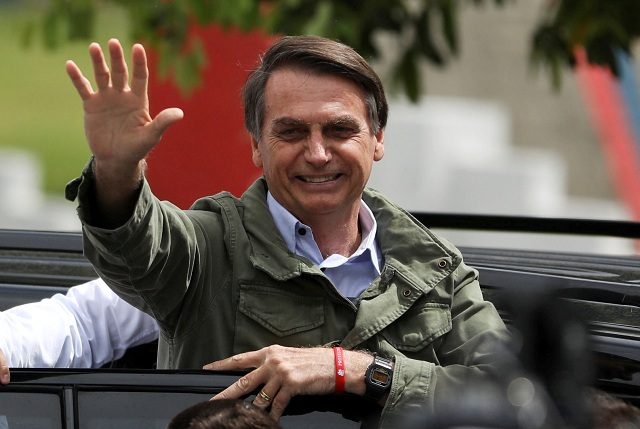
A number of foreign publications have drawn similarities between Philippine President Rodrigo Duterte and Jair Bolsonaro, the controversial winner of Brazil’s recent presidential elections.
Bolsonaro, a former military officer from the far-right Social Liberal Party won the second round of the South American country’s presidential race, winning 55.1 percent of the total votes or around 58 million votes.
His opponent Fernando Haddad of the Workers Party garnered a little over 47 of the total votes.
Despite his popularity, Bolsonaro has been the subject of controversy for many of his statements during his campaign. He has been accused of misogyny for telling a critic that he would not rape her “for being ugly” and has been labelled a homophobe for saying that he “would not love a gay son.”
The 63-year-old president elect is also known for championing anti-abortion policies, economic liberalization and gun rights and has also advocated against secularism in the state.
“God above everything. There is no such thing as this secular state. The state is Christian and the minority will have to change, if they can,” he reportedly said at a speech in 2017.
His support for torture and threats to jail political dissidents have pushed political analysts to brand him as Brazil’s first authoritarian leader.
Following his victory, some international analysts and journalists have likened him to the Philippines’ own firebrand leader, President Rodrigo Duterte.
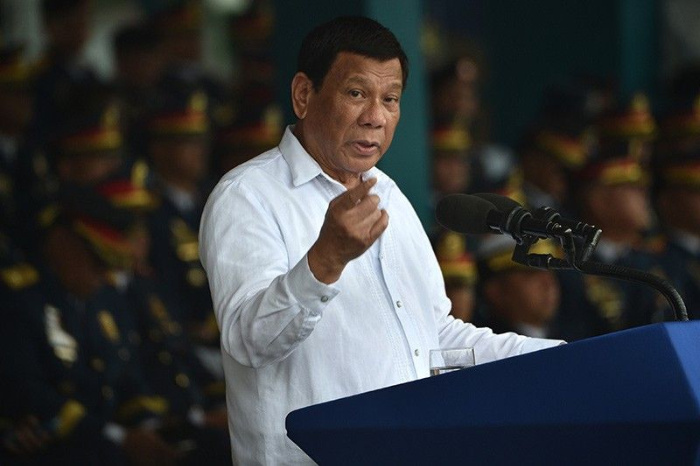
Among the first to take note of the comparisons being drawn between the two was the New York Times, which published an article that took note of how Bolsonaro’s was likened to Duterte and another leader known for an authoritarian slant, Tayyip Erdogan of Turkey.
Political analysts have watched Jair Bolsonaro's rise with alarm, fearing he could become an authoritarian leader in the mold of Recep Tayyip Erdogan of Turkey and Rodrigo Duterte of the Philippines https://t.co/TeNfGr4CA8
— The New York Times (@nytimes) October 8, 2018
An article on Axios compared the two leaders, arguing that despite having different ideologies and beliefs, both resorted to populist strongman tactics to gain the support of the masses.
Travis Waldron of the Huffington Post meanwhile said that Bolsonaro’s law enforcement policy could be compared to Duterte’s war on drugs, which has been slammed by human rights advocates around the world.
Jair Bolsonaro has become known as "Brazil's Trump," but he's worse than that. Rodrigo Duterte, whose expansion of the Filipino drug war has led to 1000s of extrajudicial killings, is the much better comparison. https://t.co/mzQIJrlen7
— Travis Waldron (@Travis_Waldron) October 28, 2018
The writer in a thread argued that Bolsonaro’s promise of strengthening law enforcement and military as well as his vow to crack down on political opponents could lead to a human rights crisis in the country, which is already known for being a hotbed of violent crime in the region.
Limits to the comparison
Vincent Bevins of the Washington Post, who claims to have studied Duterte’s administration, argued that Bolsonaro’s administration had more potential to be “radical” compared to Duterte’s.
I'm sorry to say this, but comparing Bolsonaro to Duterte is not extreme or alarmist. I know both countries fairly well, and I think Bolsonaro is more radical than Duterte in both rhetoric and political positioning.
— Vincent Bevins (@Vinncent) October 26, 2018
He explained that between the two, Duterte was the more “progressive” thinking, on account of his support for environmental protection and conservation and warmer stance toward the LGBT sector.
1. This is the first article I did on Duterte, and among others I interviewed one of his most public supporters, a famous trans activist https://t.co/6q2yt3e4Dn
— Vincent Bevins (@Vinncent) October 26, 2018
He also said that unlike the incoming Brazilian head of state, Duterte never considered his political opponents “sub-human.”
Rise of the ‘Far-right’ in Brazil
Born in 1955 in Glicério, São Paulo, Bolsonaro later attended the Academia Militar das Agulhas Negras, one of the top military schools in Brazil. He became known for criticizing low wages for military personnel during his time in service.
After 17 years in the military, he entered politics first as a city councilor in Rio de Janeiro and later ran as federal congressman for the Christian Democratic Party, serving for 26 years. He later joined the Social Christian Party just before the start of his presidential campaign but left the group for the PSL.
Those who studied the political climate in Brazil believe that the success of Bolsonaro’s campaign can be attributed to the backlash to once-dominant left-leaning Worker’s Party and the country’s marginalized sectors, such as its black population and LGBT sector.
Support from the country’s financial and business elites is also believed to be an important factor that drove his success.





